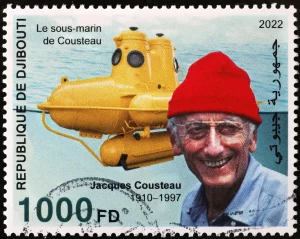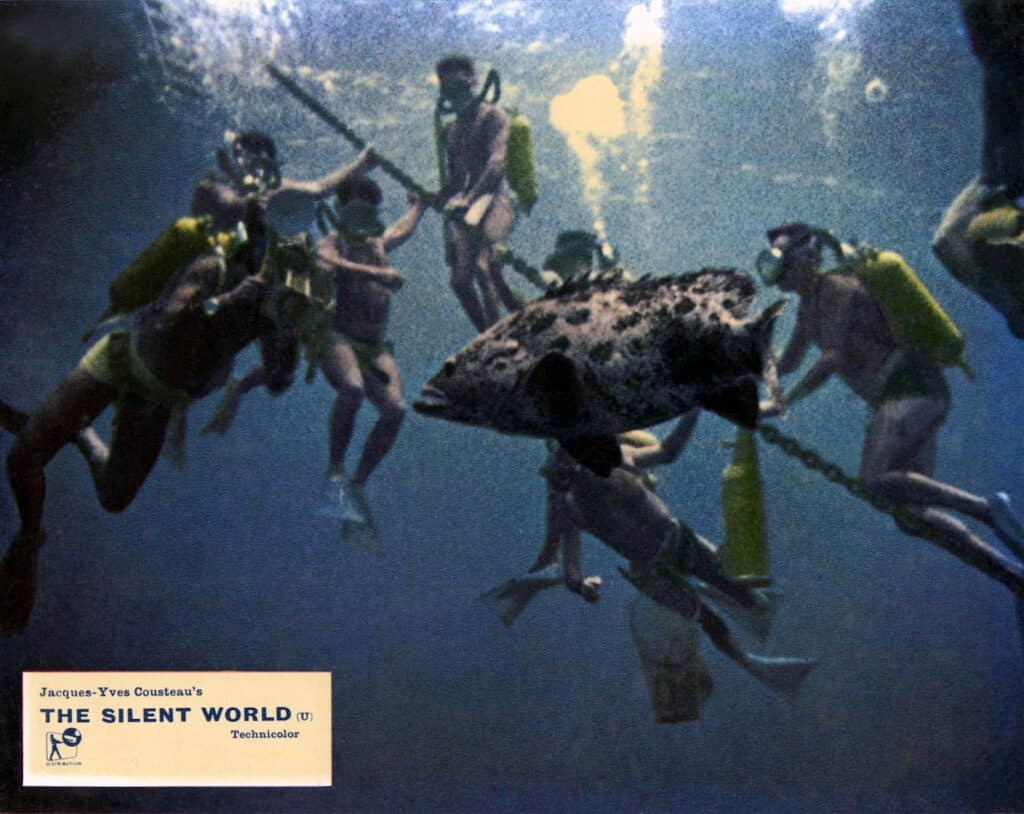Did you know the movie Life Aquatic by Wes Anderson is based on French oceanographer Jacques Cousteau?
He is famous for inventing the Aqua lung, the first self-contained underwater breathing apparatus. Back in the 1940s, this was groundbreaking.
Jacques Cousteau discovered his passion for the ocean and the underwater world when serving in the French Navy, and during that period he carried out many deep-sea experiments and improved early diving equipment.
His inventions gave scientists and explorers new tools for studying life underwater.

Jacques Cousteau, The Man Who Unlocked the Ocean’s Mysteries
Jacques Cousteau played an essential part in the history of oceanography, he was not only a skilled deep sea explorer but also an extraordinary filmmaker. His contribution and achievement in television is unmatched. He produced over 75 documentaries and films for television and won prestigious awards.
Cousteau’s film productions have been shown worldwide; his most notable films are “ The Silent World”, “A World Without Sun” (both won an Oscar for Best Documentary Film), and “Voyage to the Edge of the World”. His documentaries inspired millions of people and as a result, increased environmental knowledge and awareness.
In 1961 President John F. Kennedy presented him with the National Geographic Society’s Gold Medal.
Innovations Beneath the Waves: Cousteau’s Contributions to Oceanography
Jacques Cousteau Scuba Diving
The invention of SCUBA (self-contained underwater breathing apparatus) in the late 1940s became a turning point in history. It made it possible for divers to go underwater and swim freely for prolonged periods of time.
Captain Cousteau, along with his collaborator, engineer Emile Gagnan, deserve the lion’s share of credit for revolutionizing underwater exploration. They invented the Aqua-Lung, a type of diving regulator which changes the pressure of gas in a compressed cylinder, so it can be easily breathed by the diver. Supplying divers with compressed air only when they inhaled was a considerable innovation.
Back In 1925, captain and inventor Yves Le Prieur had designed a diving apparatus which permitted independent underwater exploration but it had a crucial limitation: dive time drastically restricted because of the continuous flow of air.
Prior to Cousteau and Gagnan’s invention, diving was a dangerous profession. Divers, aptly nicknamed “hard-hat” divers, were encumbered by cumbersome full-body suits and enormous metal helmets with limited visibility. These suits, while offering some protection, restricted movement and made even basic tasks underwater a challenge.

Discoveries of the Deep: Cousteau’s Findings in Marine Science
Jacques Cousteau’s Inventions:
Cousteau and his team designed the first submersible vehicle or submarine dedicated to scientific exploration. It allowed two crew members to travel and film at depths of up to 350 metres. He also pioneered underwater research facilities for housing researchers, enabling them to work for weeks at a time without returning to the surface.
Whilst observing pods of dolphins and their interaction, his research contributed to our understanding of how dolphins communicate, using echolocation, akin to sonar, the man-made sound navigation technology.
He discovered deep sea wonders never seen before, such as the nautilus, a mollusk that uses jet propulsion to roam the ocean deep. He was the first person to capture on camera the nautilus swimming in the deep ocean.
The Explorer Legacy: Jacques Cousteau’s Influence and Fame
Cousteau leased his famous ship, Calypso, and turned it into a floating lab. This led him to conducting underwater archaeological explorations of shipwrecks. He realised that he needed to get the public interested in his work to find funding for his research.
As a young filmmaker, Cousteau was sometimes more concerned with producing captivating stories and there’s evidence of his crew mistreating animals to get the perfect shot.
But as his writings and films became more popular, Cousteau began to recognise the detrimental effects of human activity on the ocean. During his expeditions, he began to notice pollution in the waters even 1000s of miles away from land, and he saw less diversity among the sea life.
He understood his own failings as an adventurer and insisted on not removing footage from earlier films that showed his crew killing sea life.
Over the course of his life, Cousteau became involved with conservation groups aimed at protecting the oceans and marine biodiversity. He worked to rally public support and convince politicians to stop a huge dump of radioactive waste into the Mediterranean Sea.
He also helped restrict commercial whaling by putting pressure on heads of state. He was a regular consultant to the UN and the World Bank, and in 1986, the International Whaling Commission was created to ban killing whales for commercial purposes.
The Final Dive: Reflecting on Cousteau’s Life Journey
One might reflect on his enduring legacy through his own words. Among the many profound statements he made about the oceans and our relationship with the natural world, one stands out for its simplicity and depth:
” For most of history, man has had to fight nature to survive; in this century he is beginning to realize that, in order to survive, he must protect it. “
— Jacques-Yves Cousteau
Carrying Forward Cousteau’s Vision
Imagine a future where the awe-inspiring underwater world Jacques Cousteau explored is choked by plastic and ravaged by pollution. A future where the vibrant ecosystems he documented become silent graveyards.
This is already occurring in some places. From coral reefs bleached white to entire species facing extinction, the threats are real and growing. Healthy oceans are vital for our own survival. They regulate our climate, provide us with food, and even produce a significant portion of the oxygen we breathe.
Today, The Cousteau Society persists in its mission to conduct distinctive expeditions and studies of global ecosystems, inspiring individuals to understand and appreciate the aquatic environment.
If you want to find out more and help protect marine life, visit their website. https://www.cousteau.org/
Frequently Asked Questions
How did Jacques Cousteau die?
Captain Jacques-Yves Cousteau died in 1997, at his home in Paris at the age of 87.
What is Jacques Cousteau most famous for?
Jacques Cousteau is known for his famous TV series Undersea Investigations and for co-inventing the first fully automatic compressed-air Aqua-Lung, SCUBA DIVING equipment
How did Jacques Cousteau die?
He Discovered Deep Sea Wonders and was a passionate defender of whales.
